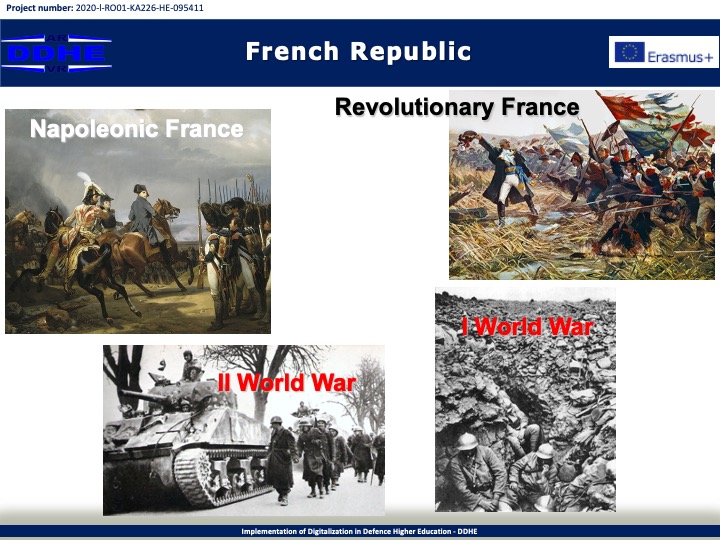
Revolutionary France
The French Revolution, true to its name, revolutionized nearly all aspects of French and European life. The powerful sociopolitical forces unleashed by a people seeking liberté, égalité, and fraternité made certain that even warfare was not spared this upheaval. 18th-century armies—with their rigid protocols, static operational strategy, unenthusiastic soldiers, and aristocratic officer classes—underwent massive remodeling as the French monarchy and nobility gave way to liberal assemblies obsessed with external threats. The fundamental shifts in warfare that occurred during the period have prompted scholars to identify the era as the beginning of "modern war". In 1791 the Legislative Assembly passed the "Drill-Book" legislation, implementing a series of infantry doctrines created by French theorists because of their defeat by the Prussians in the Seven Years' War. The new developments hoped to exploit the intrinsic bravery of the French soldier, made even more powerful by the explosive nationalist forces of the Revolution. August 23, 1793, would become a historic day in military history; on that date the National Convention called a levée en masse, or mass conscription, for the first time in human history. By summer of the following year, conscription made some 500,000 men available for service and the French began to deal blows to their European enemies. The hectic nature of the French Revolution, however, tore apart France's old army, meaning new men were required to become officers and commanders. Besides opening a flood of tactical and strategic opportunities, the Revolutionary Wars also laid the foundation for modern military theory. War now emerged as a vast panorama of physical and psychological forces heading for victory or defeat.
Treść jest rozpowszechniana na licencji Pewne Prawa Zastrzeżone Uznanie Autorstwa Na Tych Samych Warunkach 4.0